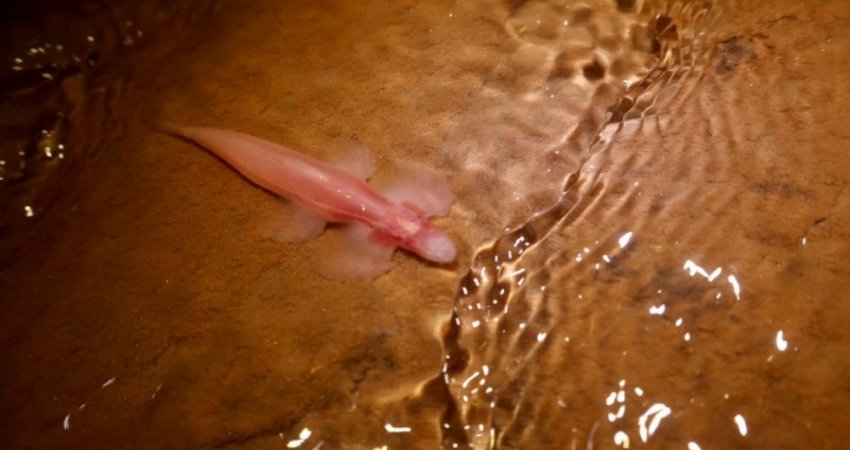Eddie Gonzales Jr. – MessageToEagle.com – An international team of scientists has identified at least 11 species of fish that may be capable of land-walking.
The findings are based on CT scans and a new evolutionary map of the hillstream loach family, which includes the only living fish species caught in the act of walking: a rare, blind cavefish known as Cryptotora thamicola, or the cave angel fish, according to researchers.

“Fishes don’t usually have any connection between their spine and pelvic fin,” biologist Zachary Randall, manager of the Florida Museum’s imaging lab and one of the study’s co-authors, said in a press release.
“But before, the idea was that the cave angel fish was totally unique. What’s really cool about this paper is that it shows with high detail that robust pelvic girdles are more common than we thought in the hillstream loach family.”
Researchers from the Florida Museum of Natural History, the New Jersey Institute of Technology, Louisiana State University and Maejo University in Thailand analyzed the bone structure of nearly 30 hillstream loach species, but not all loaches are so gifted:

Though more than 100 species of hillstream loach are found throughout Southeast Asia, the cave angel fish is the only one whose walking capabilities have been observed and studied.
Its salamander-like wiggle, powered by enlarged ribs bolstered with stabilizing muscle attachments, was first described in Scientific Reports in 2016 by Brooke Flammang, an assistant professor of biology at NJIT and the study’s lead principal investigator.
Randall said the cave angel fish’s walk is a key adaptation for surviving fast-flowing cave streams. It can grip rocky streambeds and move between habitats – even up waterfalls – as water levels fluctuate in the dry season.
The cave angel fish’s increased mobility could help it access well-oxygenated stream regions with few or no occupants.
Still, little is known about the species, including what it eats.
The team used CT scanning and DNA analysis to trace the evolutionary history of the hillstream loach family and found that, rather than evolving from a single origin, a robust pelvic region appeared several times across the hillstream loach family.
“Even though the cave angel fish was first described in 1988, this is the first time it’s been included in the hillstream loach family tree,” Randall said.
“With our Thai collaborators and using DNA analysis, we were able to use hundreds of genes to trace how pelvic shapes in these fish have evolved over time. Now, we have a much more accurate tree that adds a framework for studying how many species can walk and the extent to which they’re able to.”
Written by Eddie Gonzales Jr. – MessageToEagle.com Staff






